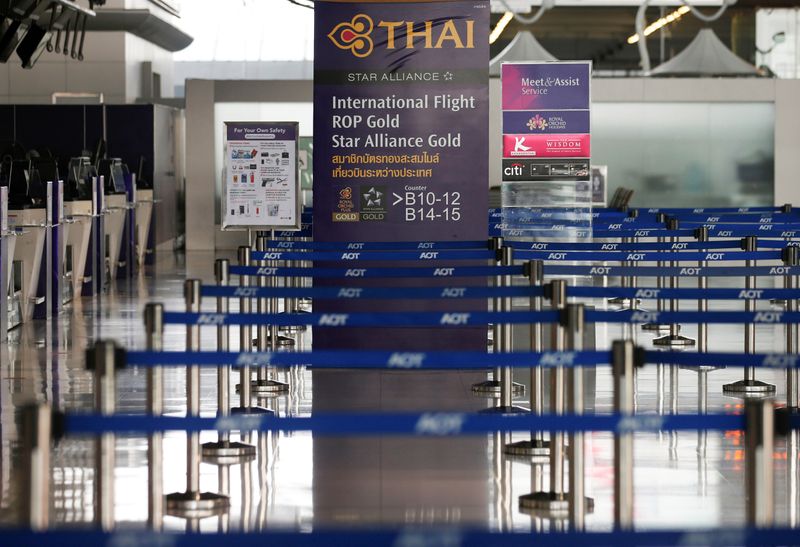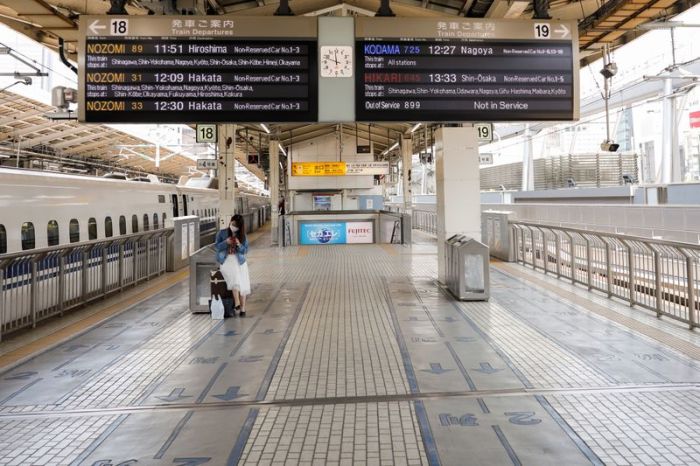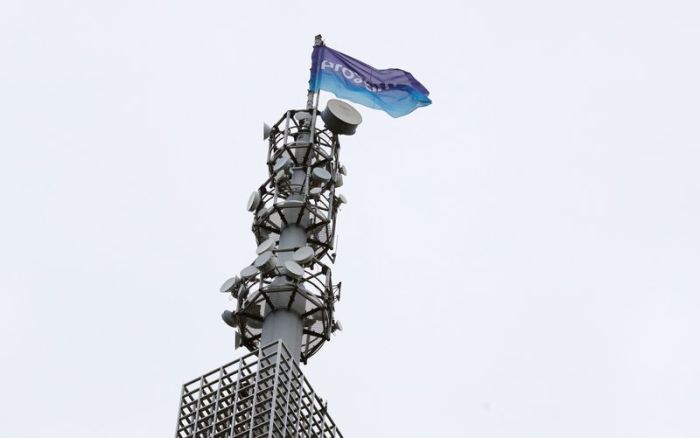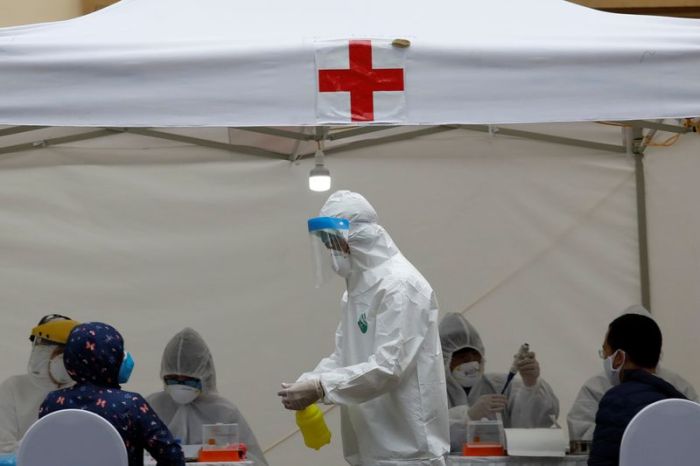BANGKOK (Reuters) – Thai Airways International PCL <THAI.BK> plans to seek a 58.1 billion baht ($1.80 billion) emergency loan to maintain liquidity and see it through a coronavirus-induced drop in demand, showed a document from the airline detailing the plan.
The proposed bridge loan, guaranteed by the Ministry of Finance – its majority shareholder – was approved on Wednesday by a committee chaired by Prime Minister Prayuth Chan-ocha and will be put to the Cabinet for approval as early as next week, a person involved in the decision to seek the loan told Reuters.
Thai media has reported the airline was seeking a multi-billion baht loan. The document seen by Reuters reveals the carrier’s detailed plan for the first time.
After the loan, the money-losing national carrier plans to raise 77.04 billion baht in capital by issuing new shares around November, and use the proceeds to pay off the loan plus interest as well as to maintain liquidity, the document showed.
Thai Airways had no comment when contacted by Reuters. The finance and transport ministries did not respond to requests for comment. The document’s authenticity was confirmed by two people involved in the decision to seek the loan, who declined to be identified as they were not authorised to speak with media.
The national carrier, which marks its 60th anniversary this year, was already facing financial trouble before the coronavirus outbreak, having reported losses since 2017.
It suspended flights in March as travel demand slumped, with governments worldwide imposing restrictions on movement to slow the spread of the novel coronavirus. Its president then resigned after less than two years in the job.
Under the plan, Thai Airways will receive emergency funds gradually based on operational requirements, said one of the people.
It will reduce the number of aircraft to 84 from 103 by 2024, and types of aircraft to six from seven, and will lay off some of its 21,000 employees, the document showed.
The airline is also looking for partners and is considering spinning off business units such as catering and engineering, the document showed.
Its share sale – which would dilute the finance ministry’s shareholding to under 50% from 51% – could see buyers include state-owned banks and government funds, said the person.
Under Thai law, companies that have a direct government holding of over 50% are considered state enterprises and are subject to additional regulation such as regarding management and labour.
Major investment decisions such as aircraft procurement require approval from multiple government agencies and expose the airline – whose presidents have been political appointees without aviation experience – to outside influence.
Diluting the government’s shareholding will allow Thai Airways to operate more dynamically, experts said.
“Breaking away from state-enterprise regulation is a good signal, which could lead to improvement in management and ward off political influence,” said Ben Kiatkwankul of political advisory Maverick Consulting Group.
“However, the airline will have to overcome long-standing practices and traditions and bring on professional leadership with a strong aviation background to be successful.”
Like Thai Airways, Thailand itself is heavily reliant on travellers. Southeast Asia’s second-largest economy stands to lose 1.3 trillion baht, mostly in the tourism sector, due to the impact of the virus, which has infected over 3 million people globally and led to more than 225,000 deaths.
(Reporting by Chayut Setboonsarng and Panu Wongcha-um; Editing by Christopher Cushing)































